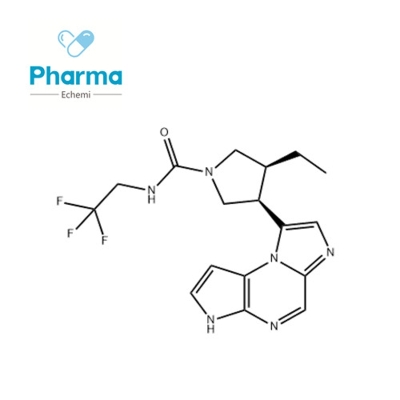Tsinghua University and other units for the first time found the immunological characteristics of the newly recovered patients.
-
Last Update: 2020-07-22
-
Source: Internet
-
Author: User
Search more information of high quality chemicals, good prices and reliable suppliers, visit
www.echemi.com
The novel coronavirus (SARS-COV-2), which was discovered at the end of 2019, rapidly swept the globe, and brought huge losses to people's health and social economic development in various regions of the world.sars-cov-2, SARS CoV found in 2003 and mers cov in 2012, belong to coronavirus, which is a kind of positive single stranded RNA virus with envelope, which can cause severe pneumonia and even death.on March 20, 2020, Dong Chen team of Institute of immunology of Tsinghua University, Chen Fang team of Chuiyangliu Hospital Affiliated to Tsinghua University and Qin Chengfeng team of Academy of Military Medical Sciences published a research paper entitled "characterization of anti-virus immunity in recovered individuals affected by sars-cov-2" in medrxiv. The novel coronavirus pneumonia (COVID-19) novel coronavirus pneumonia (COVID-19) patients were analyzed for blood and the humoral and cellular immune functions of the patients with newly diagnosed crown pneumonia (COVID-19) were first reported in.the clinical data show that the lymphocytes in the blood of patients with covid-19, especially the patients with severe diseases, are significantly decreased, and the levels of pro-inflammatory cytokines are significantly increased, which indicates that the immune system plays an important role in the disease process.previous studies have shown that specific antibodies participate in the immune response of SARS and mers patients, but there is no report on the immune function of covid-19 patients, especially the acquired immune system.the researchers tested peripheral blood samples from 12 convalescent patients with covid-19 and three uninfected patients, and analyzed their humoral and cellular immune responses.all samples were taken from the convalescent patients with mild infection. One group of samples was taken from 6 discharged patients, and the other group was taken from 6 patients who were followed up two weeks after discharge.using the purified sars-cov-2 N protein (nucleocapsid protein), major protease and s-rbd (spike glycoprotein receptor binding region) expressed and purified in vitro, the researchers detected specific IgM and IgG antibodies against these proteins in the sera of convalescent patients.no specific antibodies against the major protease of sars-cov-2 were detected in most samples.however, specific IgM and IgG antibodies to N protein and s-rbd were detected in the serum of patients who had just been discharged from hospital. The two specific IgG antibodies remained high in the samples of patients followed up for two weeks, while the level of IgM antibody decreased.in vitro neutralization test of pseudovirus antibody showed that there were a lot of protective antibody in the serum of patients who had just discharged from hospital, but the level of protective antibody in the serum of patients who were followed up for two weeks after rehabilitation was relatively lower, but still existed.this suggests that covid-19 infection is accompanied by antibody production in all patients, and antibodies, especially IgG, can be maintained at a high level at least 2 weeks after discharge.in terms of cellular immunity, through the analysis of PBMCs (peripheral blood mononuclear cells) of convalescent patients, the researchers found that there was no significant difference in the proportion of total T cells in the blood between the convalescent patients and the uninfected patients S-rbd specific T cells were the most widely distributed and N protein specific T cells were the highest.however, only one patient could detect specific T cells in the two-week follow-up after rehabilitation.the data suggest that T-cell immunity in patients with covid-19 is involved in pathogen clearance, but it cannot maintain a high level two weeks after discharge.in addition, the data of 12 convalescent subjects showed that the level of neutralizing antibody was significantly positively correlated with the number of N protein specific T cells. this suggests that specific humoral and cellular immunity may work together to effectively eliminate the virus in patients with covid-19. novel coronavirus (SARS-CoV-2) was found to be involved in humoral immunity and cellular immunity. Specific humoral immunity remained in patients after two weeks of rehabilitation, while cellular immunity level decreased significantly. Further studies were needed on whether the two could play a long-term protective role. this study laid a theoretical foundation for the diagnosis of infected persons, tracing of previous infected persons, development of therapeutic antibody drugs and vaccine design. Dr. Ni Ling, associate researcher of Dong Chen team of Tsinghua University, ye Fang, director of Chuiyangliu Hospital Affiliated to Tsinghua University, and Cheng Mengli, doctoral student of Qin Chengfeng team of Academy of Military Medical Sciences, were the co first authors of the paper. Feng Yu, Wei Peng, Li Xiaoli, Wang Pengzhi and Sun Lin, doctoral students, participated in the work. other researchers of the paper also include Professor Wang Xinquan and his postdoctoral postdoctoral, Ge Jiwan, Liang Peng and Guo Han of Chuiyangliu hospital, Deng Yongqiang and Qin Chengfeng, PhD, Academy of Military Medical Sciences. Professor Dong Chen and Professor Chen Fang of Chuiyangliu hospital are the co communication researchers of this paper. the research was supported by NSFC, Ministry of science and technology, Zhejiang University Foundation, etc. paper links:
This article is an English version of an article which is originally in the Chinese language on echemi.com and is provided for information purposes only.
This website makes no representation or warranty of any kind, either expressed or implied, as to the accuracy, completeness ownership or reliability of
the article or any translations thereof. If you have any concerns or complaints relating to the article, please send an email, providing a detailed
description of the concern or complaint, to
service@echemi.com. A staff member will contact you within 5 working days. Once verified, infringing content
will be removed immediately.







